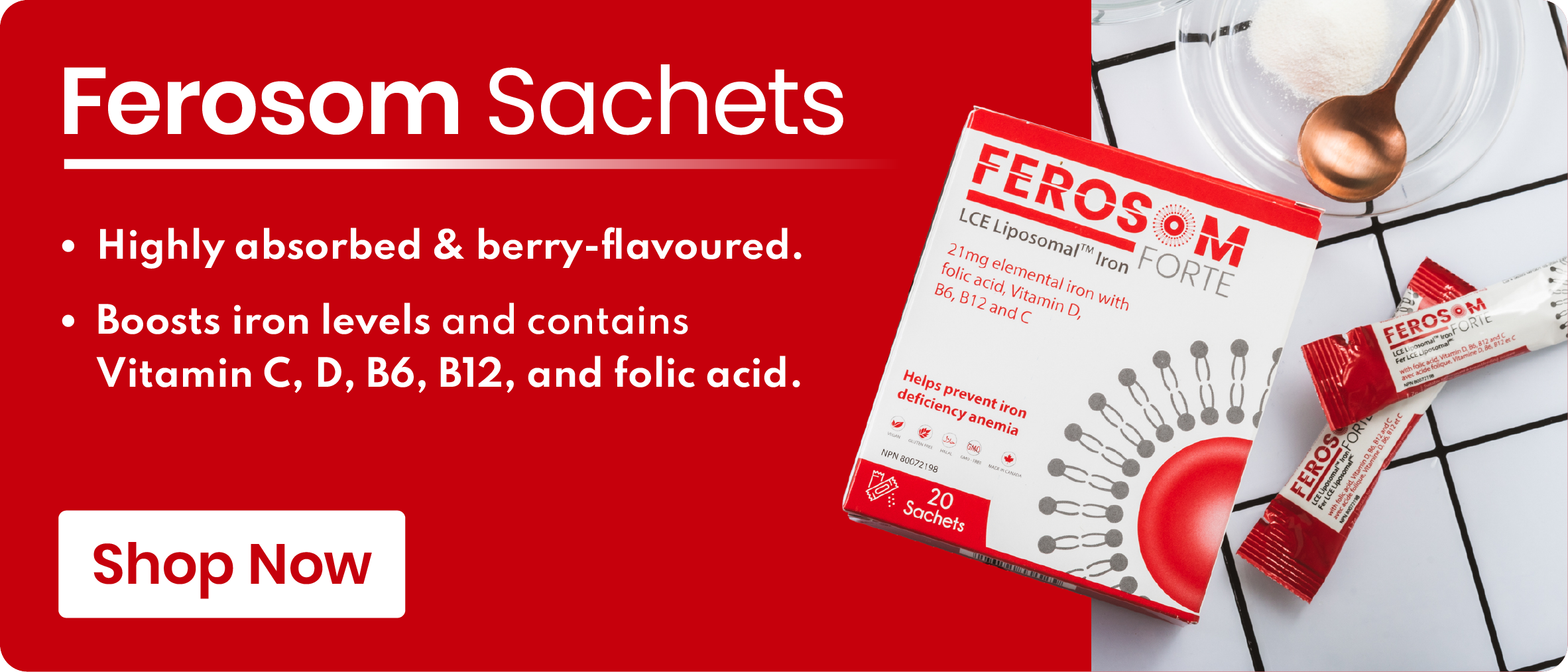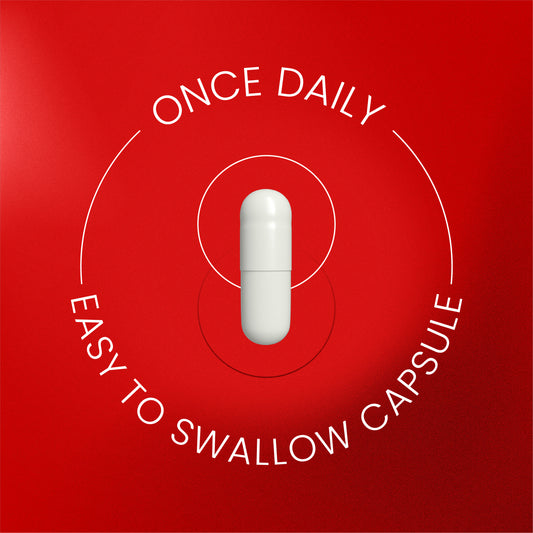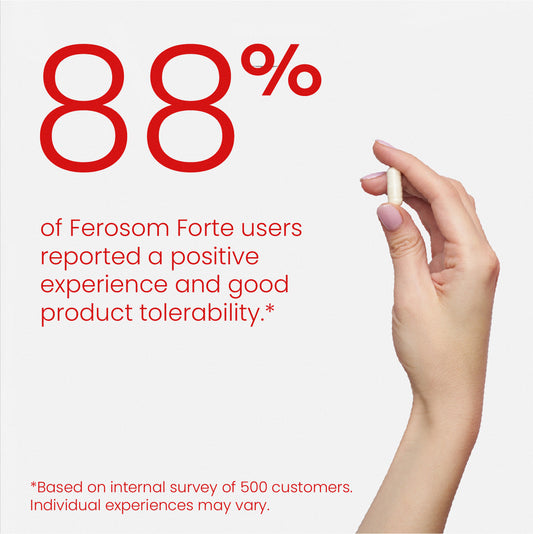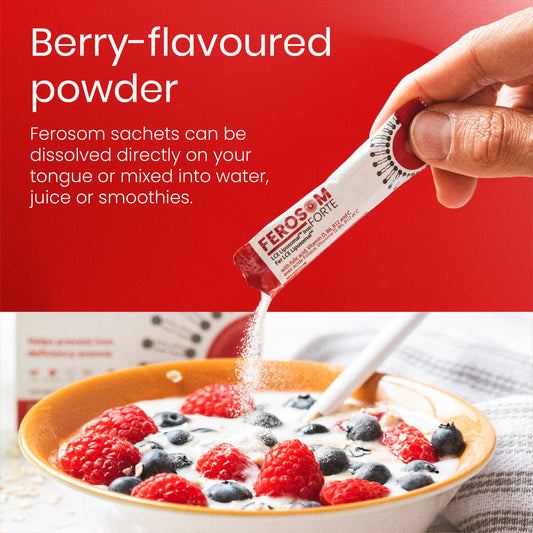

Hair loss is a normal part of life. It happens naturally for most people as they age. Believe it or not, the American Academy of Dermatology says it’s normal to shed between 50 to 100 hairs a day.
But sometimes hair loss can be a symptom of a greater issue, like iron deficiency anemia. So how do you know when losing your luscious locks is a way of life or a warning sign? And how can you boost your iron levels to address hair loss caused by low iron? Let’s pick this topic apart strand by strand.
What are the causes of hair loss?
There are so many reasons you might notice your hair thinning. For some it’s genetics. For others, it’s hormonal changes during pregnancy or menopause. More common causes can include:
- Extreme stress
- Certain medications
- Radiation therapy
- Thyroid problems
- Conditions like alopecia
- Damaging hair treatments or excessive hairstyling
- Iron deficiency anemia
If you’re experiencing hair loss, it’s difficult to know which cause is the culprit. When in doubt, always talk to your doctor about your hair loss symptoms and how to diagnose them.
How do I know when my hair loss is serious?
Losing a few strands here or there is normal. But if you’re shedding more hair than usual, it might be time to take notice. Use this checklist as a guide to understanding your symptoms:
- Does your hair feel thinner or more brittle?
- Is your hair thinning at the top of the crown or the hairline (typical areas for male or female patterned baldness)?
- Has your hair stopped growing?
- Have you lost your natural curls or texture?
- Are you experiencing other symptoms, like fatigue, lightheadedness, or cold hands and feet?
Many of these symptoms can signal other potential health issues, like iron deficiency. If you’re experiencing any of the above, check in with your doctor and ask for a blood test.
Can iron deficiency cause hair loss?
Yes—hair loss is a common symptom of iron deficiency. Iron is a vital nutrient that helps red blood cells carry oxygen throughout the body. Your cells need this oxygen to grow and repair, including the cells responsible for healthy hair.
If you have low iron, your cells might not have enough oxygen to function. This can lead to a condition called telogen effluvium, in which an influx of hair follicles are pushed into the “rest phase” of their life cycle.
In the rest phase, AKA the telogen phase, it’s normal for hair to fall out. But if too many hair follicles enter the rest phase at once, the hair strands fall out—and don’t grow back. The result? Your hair might thin out, break easily, stop growing, or lose its natural texture.
Here’s the good news: hair loss caused by low iron is temporary. You can get your hair back to its healthiest self by boosting your iron intake.
Can iron also help with hair growth?
You bet it can. As we said, iron is a key ingredient for happy cells. So the healthier your iron levels are, the healthier your hair cells will be.
Maintaining great iron levels can help you avoid hair loss. But it can also make your hair stronger, longer, and more resilient—especially since iron boosts the absorption of vitamins your hair needs to grow. Iron also plays a role in hair colour, protecting against premature greys or other unwarranted colour changes.
IMPORTANT NOTE: Iron is not a magical hair growth drug. Too much iron can lead to complications like iron poisoning. If you already have healthy iron levels, taking more iron will likely not lead to more voluminous hair.
How do you treat hair loss caused by iron deficiency?
Iron supplements are a great place to start. If you have iron deficiency or iron deficiency anemia, your doctor will create a personalized treatment plan to up your iron intake and stop the hair loss. Some people can do this through diet alone. But most people need a little extra help.
Iron supplements can help kickstart the anagen phase—AKA the active phase of hair growth when hair follicles work hard to produce hair fibres. They can also make your hair healthier from root to tip.
Since most iron supplements cause harsh gastrointestinal side effects, it’s important to take a Liposomal iron supplement like Ferosom Forte. Liposomal means that the iron is encapsulated in a protective layer that avoids acid breakdown in the stomach and absorbs directly into the small intestine. In other words: Fewer side effects, higher absorption rate, win-win.
How can I keep my iron levels healthy day-to-day?
Taking a Liposomal iron supplement daily is an effective way to keep your iron levels healthy. You can also incorporate more iron-rich foods into your diet, like:
- Seafood, fish, and lean red meat
- Leafy green vegetables like spinach
- Lentils, beans, peas, and potatoes
- Nuts, seeds, and dried fruits
- Iron-fortified grains and cereals
- Dried fruit
- Tofu
- Eggs
HOT TIP: Combine these iron-rich ingredients with vitamin C to enhance iron absorption. Some iron supplements, like Ferosom Forte, are even formulated with vitamin C for a bigger absorption boost.
Your locks deserve Liposomal iron.
Hair is such a big part of what makes us, well, us. That’s why losing it can feel frustrating and confusing. If low iron is to blame, increasing your iron levels can make a major difference. And the more iron that actually absorbs into your body, the healthier your hair will look and feel.
That’s why Liposomal iron, like Ferosom Forte, is a powerful solution for hair loss caused by iron deficiency. Ask your doctor about Ferosom to restore your hair health—and improve your overall health in the process.








